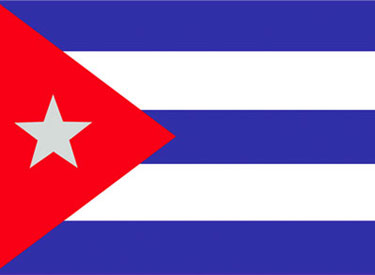More worry than salsa at Cuba's 50th
 Buenos Aires/Havana - Cuba may be celebrating the 50th anniversary of its socialist revolution on Thursday, but there's not really a celebratory mood on the Caribbean island.
Buenos Aires/Havana - Cuba may be celebrating the 50th anniversary of its socialist revolution on Thursday, but there's not really a celebratory mood on the Caribbean island.
Instead of parties with sensuous salsa dancing, the island's 11.5 million people are plagued by worries about the future.
Fifty years of planned economy, the US trade embargo of a near equal number of years, the collapse of the Soviet Union, three back- to-back hurricanes this year and the worldwide economic crisis: there are many reasons why Cuba still has a limping economy and limited civil rights for its people.
Any way one looks at it, whether friend or foe, the consequences of the permanent revolution under the leadership of ailing Fidel Castro look the same: empty pockets have dampened the celebratory mood.
On the last day of 2008, Lazaro, who spoke on condition of anonymity to protect his family, waited with his bicycle rickshaw in vain for customers in front of the "anti-imperialist" stage set up for Thursday's celebrations.
There, where Fidel held his marathon speeches before the assembled masses until he was incapacitated by illness in July 2006, only music groups, including one named "Greetings from the Revolution," will appear on Thursday.
The formal celebration of the revolution will take place later in the day in faraway Santiago de Cuba, where Fidel declared victory for his rebel forces on January 1, 1959.
"Business is a little flat," Lazaro conceded with a sad laugh. "Actually, I should be at home with my family, but I am working today in the hopes of earning some money to buy a little meat."
Customers are few and far between, and there will likely be no holiday meal for Lazaro's family.
President Raul Castro, 77, Fidel's younger brother who formally took over leadership in February 2008, already warned Cubans before Christmas that they would have to tighten their belts.
"The problem is that with the money that the government pays us, you simply can't manage," Lazaro complained. "Castro One and Castro Two (Fidel and Raul), that's one and the same."
For Michel and Alberto, two waiters in a bar in Havana's center who also spoke on condition of anonymity, a huge New Year's and revolutionary celebration is an unattainable luxury.
The 50th anniversary is the triumph of the revolution, but it won't be celebrated in this country because there's no money for it, they complained.
A few streets further sat a retired historian in front of the Capitol, a replica of the hated building in "imperialistic" Washington where the US Congress meets.
The 76-year-old man was hoping to sell tourists counterfeit three- peso coins (0.12 dollars) bearing the image of Fidel's revolutionary iconic comrade, the late Ernesto Che Guevara.
He hoped to add a little to his small pension of 10 dollars a month to help his wife and two grandchildren.
"The country's not in a mood to celebrate," he says. "Yes, there are always rice and beans, but not even a shred of meat."
Sitting on a nearby park bench is the Spanish tourist Procopio Perez, who sees it all differently. He's on his second visit to the Caribbean island because it "fascinates" him.
"I don't deny that there are shortages, but the basic needs are fulfilled," he said. Cuba's free education and health systems are unparalleled in Latin America. The illiteracy rate in Cuba is lower than in the giant economy about 100 kilometres to the north, the United States.
After a half century of revolution, the future of socialism with a Cuban touch is uncertain.
"Socialism has not proven to be a mistake," Raul Castro said in an interview broadcast Thursday. There are "problems," but he was basically "optimistic."
There were "vital issues" such as the need to boost production, raise exports and expand national food production.
But it remains questionable whether all this is possible without deep-reaching reforms, and whether socialism a la Cuba would survive such measures. (dpa)